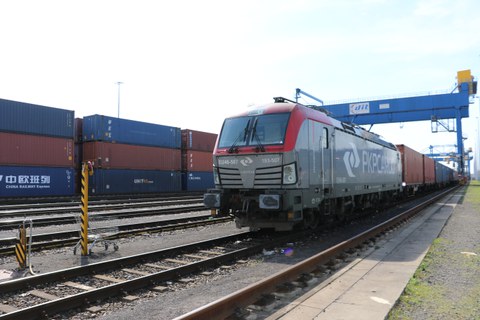Mar 06, 2024
Eurasian rail freight against the backdrop of maritime disruptions: A deep dive into Eurasian rail service quality

Container transshipment along the Eurasion rail corridor
The Suez Canal, a critical channel in international shipping, has been disrupted by ongoing conflicts, resulting in rerouted or halted shipments and skyrocketing costs. With supply chains looking for stable alternatives, the spotlight has shifted to Eurasian rail transport, which has seen a dramatic increase in demand since the Red Sea attacks.
Jing Shan, Nikola Bešinović, and Jörn Schönberger's recently published paper titled"Service Quality Assessment of International Rail Transport with Multiple Border Crossings: Eurasian Rail Transport as an Example" in the Journal of Rail Transport Planning & Management puts the focus on Eurasian rail freight options. Specifically, the study poses assessment options, whether Eurasian rail transport meets the changing demands of a disrupted supply chain. Furthermore, it addresses the challenge of quantifying the service quality of this intercontinental rail service with multiple border crossings and varying operational specifications.
The study proposes standardizing key performance indicators for service quality assessment, thereby directly linking intercontinental rail freight transport to global supply chain transportation demands. The preliminary findings of this study highlight the critical need for improvement in Eurasian rail service quality to ensure that it not only serves as a reliable alternative to maritime transport, but also as an integral component in the resilient global supply chain network. It not only documents the challenges that Eurasian rail transport faces in today's geopolitical climate, but also plots a path for its evolution into a more robust, efficient, and reliable supply chain option. With its analysis and practical implications, this paper could be of interest to policymakers, logistics professionals, and academics.
